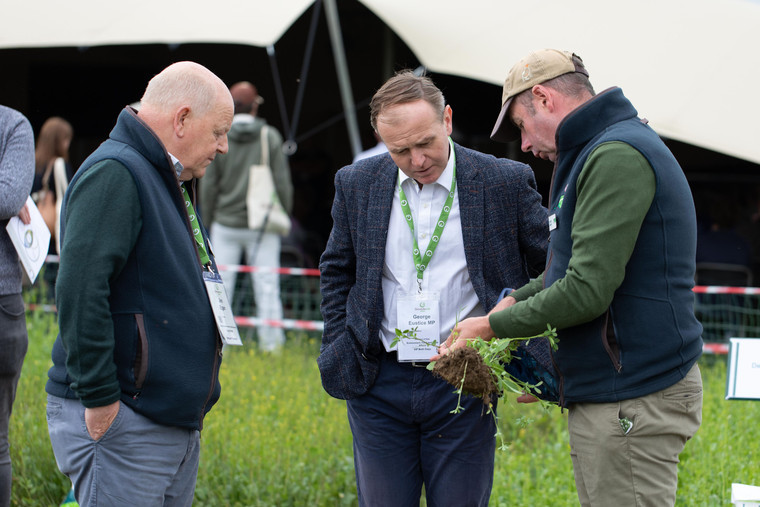At the show, which focuses on regenerative agriculture and is featured in this month’s edition of South East Farmer, Mr Eustice confirmed that from 2028 there would be an even split of funding for the three-pronged scheme.
The Sustainable Farming Incentive and the Local Nature Recovery and Landscape Recovery Schemes will be the main delivery mechanism for projects that “mitigate the impacts of climate change and support both nature recovery and sustainable farm businesses”.
The new grant schemes, which represent the most significant change to farming and land management in 50 years, will be vital to landowners and farmers who are set to see the Basic Payments that currently sustain many of their businesses phased out over the coming years.
In front of a no-doubt receptive audience, the Environment Secretary reaffirmed his commitment to regenerative farming in developing future farming policy, and said the aim was for 70% of farms to benefit from ELMS by 2028.
DEFRA has stressed that in contrast to the old EU pillar structure, where a budget was trapped in one pillar and could not be transferred, these future schemes will “complement one another and work to the best interest of farmers”.
The Environment Secretary said regenerative techniques such as topsoil regeneration and the use of cover crops, integrated pest management and mixed agriculture would be further encouraged under ELMS.
Mr Eustice said it was well recognised that the industry needed to change its approach to tackle the environmental challenges on climate change and biodiversity, adding: “Leaving the European Union gives us a great opportunity to show the world how we can do this, through a seven-year transition to reorder farming incentives so that we support regenerative agriculture.”
He said the Government had committed to maintaining the current levels of investment in farming of £2.4bn per year, on average, over the life of this Parliament, and said direct payments had been “unfair and ineffective”.
Mr Eustice said the Landscape Recovery Scheme would deliver long-term land use change projects supported by “bespoke and long-term” agreements and payments. They could start as early as next year to support the Government’s commitment to launch a minimum of 10 landscape recovery projects over the next four years to deliver at least 20,000 hectares of restored habitat.




